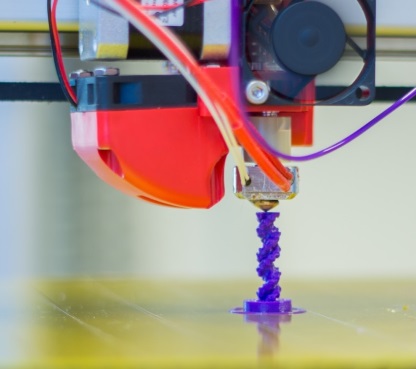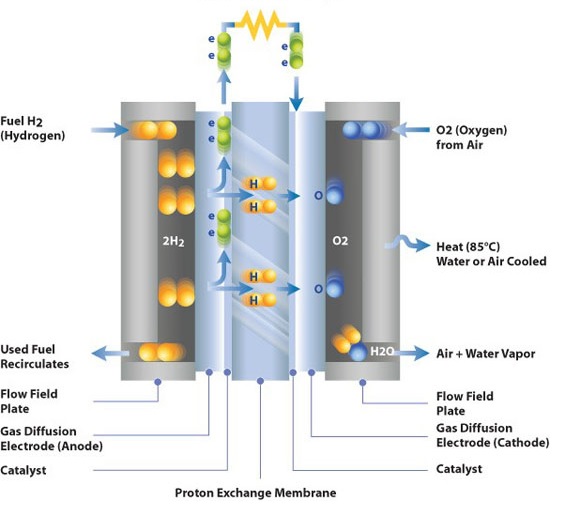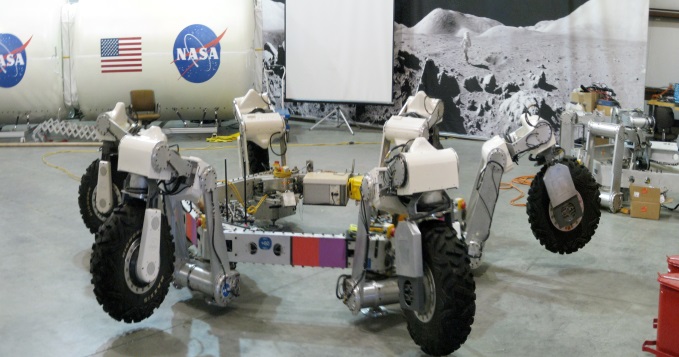India produces around fifteen lakh engineering graduates every year. According to recruiters only one-tenth of them are employable. So, one may ask: ‘what factors are in play in separating the employable from others?’ Maybe the content, not the context of learning is given too much of a focus in the prevailing education system.
 Note:
Note:
Have you checked out our Projects on Innovative technologies yet?
Project kit will be shipped to you and you can build using tutorials. You can start with a free demo today!
1. IoT Projects
2. Wireless Communication Projects
13. Arduino Projects
15. Python Projects
As a result of this system students aren’t able to comprehend the technologies that are in use today or have knowledge on emerging technologies. Therefore, a drastic change in perception is needed among the students.
Nevertheless, detachment from certain clichés and thinking out of the box could certainly fuel students to explore careers in new fields of engineering. Expertise on these engineering domains evidently will bolster the employability of engineering graduates. India Today recently listed 8 hot emerging jobs for engineering students in India. Here is a detailed report/analysis of the same:
3D Printing, or Additive Manufacturing, is the method of creating three-dimensional objects modeled on the basis of input parameters from a digital system like computer-aided design software. As per the input, the real-life model is realized by robotic arms which build the 3D object by depositing manufacturing material layer by layer.

Evidently, 3D printing technology is the next big innovation wave to hit industries across all domains. The 3D printing market is expected to undergo a sizeable increase of 500% in the next five years.

Features of design visualization and optimization, feasible with the use of 3D printers, has substantially increased the efficiency of manufacturing setups. Adopting this technology is hence high priority at almost all industries in India.
On the whole, 3D printing is set to revolutionize industry stereotypes and additionally create new jobs for engineering students.
Want to develop practical skills? Checkout our latest projects and start learning for free
Uncontrolled increase in human population has resulted in manifold increase in consumption of traditional fossil fuel energy sources. As the reserves of these energy sources are drying up, mankind is in full pursuit of viable alternative energy sources. Solar, wind, water, biofuels, biomass power, small hydro, and waste energy are current favorite options of renewable or alternative energy sources.

Further, statistics suggest that investment in alternative energy sources is set to touch the $10 billion mark, with an annual growth rate of 70%. This accounts for a massive demand of energy system experts.
 Moreover, energy system engineers study energy generation, conversion, electrical power systems and energy management. Their main objective is to increase efficient use of energy sources and to develop smart choices of renewable and existing energy utilization. It is also required from the energy experts to understand global and local impact of their work with an eye on the future.
Moreover, energy system engineers study energy generation, conversion, electrical power systems and energy management. Their main objective is to increase efficient use of energy sources and to develop smart choices of renewable and existing energy utilization. It is also required from the energy experts to understand global and local impact of their work with an eye on the future.
Summing up, knowledge on energy systems is essential to provide constructive solutions to energy problems of the Earth.
Energy system engineers, hence, are an integral part of ‘Green Engineering’.
 Also known as Drones, UAVs, or Unmanned Aerial Vehicles do not need a human pilot on board to operate. They can be autonomously controlled by embedded computer systems or can be utilized via radio controls by a pilot remotely located.
Also known as Drones, UAVs, or Unmanned Aerial Vehicles do not need a human pilot on board to operate. They can be autonomously controlled by embedded computer systems or can be utilized via radio controls by a pilot remotely located.
In fact, UAVs find a multitude of military and civil applications with an astounding number of plausible applications.
Several applications of UAVs are

Additionally, the UAV industry is the fastest growing sector of the aviation industry, calculated to experience further exponential growth. Thus, the demand for unmanned vehicle system engineers has skyrocketed.
In short, UAV technology has been a revelation for the aviation industry and is now storming into different industries. UAV engineering adopts several engineering principles and hence opens up plentitude of career opportunities.
 Did you know
Did you know
Skyfi Labs helps students develop skills in a hands-on manner through Mechanical Online Courses where you learn by building real-world projects.
You can enrol with friends and receive kits at your doorstep.
You can learn from experts, build working projects, showcase skills to the world and
grab the best jobs.
Start Learning Mechanical today!
 Advanced Materials engineering encompasses the study of complex/ composite materials with far more advanced characteristics as compared to traditional materials. Advanced materials play a pivotal role for evolution of all technologies as they have to be in sync with latest technical changes in engineering practice.
Advanced Materials engineering encompasses the study of complex/ composite materials with far more advanced characteristics as compared to traditional materials. Advanced materials play a pivotal role for evolution of all technologies as they have to be in sync with latest technical changes in engineering practice.
To be specific, advanced materials engineering study involves fabrication, characterization, durability, failure analysis and processing of advanced materials. It also involves analysis of the physical and chemical properties of the materials.
Primarily advanced materials find critical uses for:

To summarize, advanced materials engineers seek to understand the basic physical and chemical properties of metals. This understanding acts as a base to continuously improve technologies for human needs. Additionally, the advanced materials market is experiencing a steady growth, generating more jobs every year. So, this is a unique and interesting career option for engineering aspirants.
The most basic description of a fuel cell is that it is a cell capable of generating electricity directly as a result of a chemical reaction. Fuel cells function like a battery, but no electrical re-charging is required.
That is, a fuel cell generates electrical power by a chemical reaction between hydrogen, the fuel, and oxygen, the oxidizing agent, in the presence of an electrolyte, i.e. medium for flow of electrically charged ions. The byproducts of the reaction are water and heat. Fuel cells can completely act as a renewable energy source by using solar power, or any other adequate energy source, to split the water byproduct into hydrogen.
As a result, fuel cells find applications as an alternative power solution, for co-generation energy systems, fuel cell electric vehicles, fuelling stations, portable power systems and many more fields where efficient energy is needed.
 Worldwide, fuel cell shipments are increasing with an annual growth rate of 85%. This translates to a steady demand for fuel cell engineering experts, as the use of fuel cell has become more prolific. Energy and automobile companies are the major recruiters of fuel cell experts.
Worldwide, fuel cell shipments are increasing with an annual growth rate of 85%. This translates to a steady demand for fuel cell engineering experts, as the use of fuel cell has become more prolific. Energy and automobile companies are the major recruiters of fuel cell experts.
Fuel cell experts do have a bright future ahead of them. A fuel cell engineer designs fuel cell samples, analyzes fuel cell systems by simulating and integrating various technologies, and performs several tests for research and development of fuel cell technology.
 Nanotechnology is about the engineering of functional systems scaled down to nanometer, or atomic range. In simple words, it is a technology that deals with systems at a sufficiently small scale. It is sometimes is also called as molecular manufacturing.
Nanotechnology is about the engineering of functional systems scaled down to nanometer, or atomic range. In simple words, it is a technology that deals with systems at a sufficiently small scale. It is sometimes is also called as molecular manufacturing.
Working at such a minute scale opens up a host of possible applications across various domains such as:
To achieve nanotech expertise, knowledge on multiple disciplines like material sciences, chemistry, physics, biology, etc. is expected. Added to that is the knowledge on major theories and practices of modeling, fabrication, design and several other characteristics of other related technologies involved.
In India, considerable amount of resources are expended to advance and use nanotechnology. Research predicts that by 2025 one in every four nanotech professional would be from India, a statistics for engineering students to ponder over.
 Robots are ‘the’ technology of the future. The continual use of Robots, trusted with several critical tasks as well, illustrates this fact. Robotics connects various disciplines like electrical, mechanical and computer (specifically artificial intelligence) engineering for design, construction, operation of a robot.
Robots are ‘the’ technology of the future. The continual use of Robots, trusted with several critical tasks as well, illustrates this fact. Robotics connects various disciplines like electrical, mechanical and computer (specifically artificial intelligence) engineering for design, construction, operation of a robot.
Furthermore, the characteristics of robot designs change in accordance with the application and environment of operation. Some fields of Robotic applications are:

As a matter of fact, the robotics market has already enjoyed a fair share of success and is looking into a bright future. Extensive use of robots is ultimately generating more job opportunities for engineering students adept in robotics technology.
To sum up, robotics learning ensures that students keep up with the understanding of what science and technology have to offer. It helps spark innovative thinking that may be absent among budding engineers.
Simulation technology involves creating virtual models of engineering projects using computer systems for analyzing the feasibility of the project. Various risks and benefits are evaluated to ensure optimized engineering. In other words, simulation is used to create a digital replica of a real-life project based on certain mathematical criteria and computer programming.

After all, simulation technologies are very helpful for engineering research work and are finding a place for analysis of almost every other engineering project. A simulation engineering expert must take into account concept, implementation and management features of the simulation model.
 In the coming days everything will be possible to simulate. Simulation is turning out to be a fundamental method to increase productivity of engineering projects. And, engineering firms from healthcare, gaming, automobile, manufacturing, transportation and many more are employing simulation technology. So it would be a great career option for engineering graduates.
In the coming days everything will be possible to simulate. Simulation is turning out to be a fundamental method to increase productivity of engineering projects. And, engineering firms from healthcare, gaming, automobile, manufacturing, transportation and many more are employing simulation technology. So it would be a great career option for engineering graduates.
In conclusion, these hot emerging jobs provide ample opportunities for graduating students to edge ahead of competition by broadening the scope of their engineering learning. Practical experience in these emerging engineering fields will boost job opportunities.
Overall, knowledge on these technologies will certainly help curtail unemployability rates and encourage the students to renew their mindset for a better engineering professional career.
Join 250,000+ students from 36+ countries & develop practical skills by building projects
Get kits shipped in 24 hours. Build using online tutorials.
Stay up-to-date and build projects on latest technologies